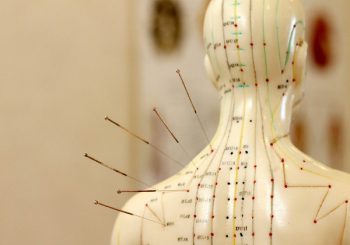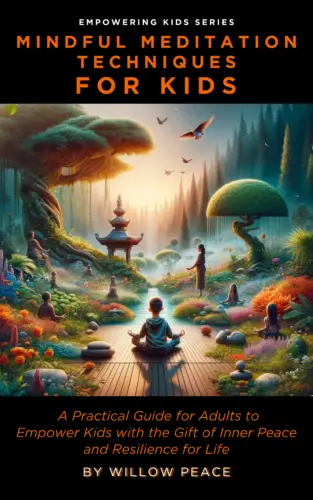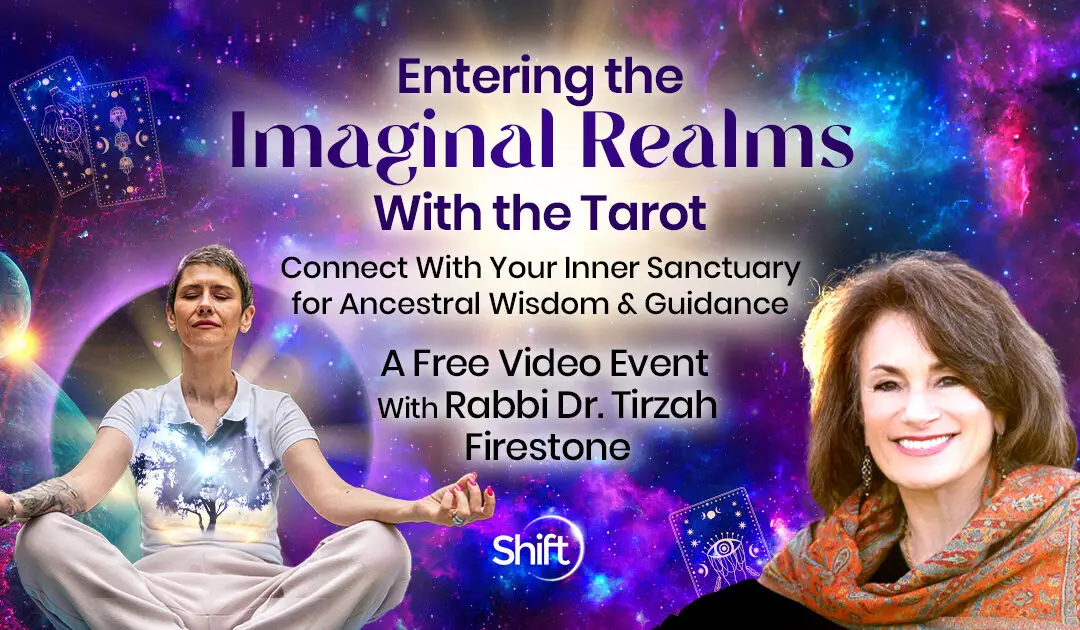 By Sayer Ji
By Sayer Ji
Contributing writer for Wake Up World
Will a time-tested intervention like acupuncture point your health in the right direction, or is it a useless stab at well-being?
A centuries-old practice that takes off from traditional Chinese medicine, acupuncture has been widely studied for its potential against chronic pain. In one of the largest studies to date on the relationship, a meta-analysis involving almost 18,000 patients found that acupuncture can effectively treat chronic pain, serving as “more than a placebo.”[i]
The scientific literature, however, shows that stimulating certain points on the body, often with a needle that penetrates the skin, may go well beyond alleviating pain. Here are seven reasons to try acupuncture for better health today.
1. Addiction
Acupuncture involves a meridian system that strings connecting acupuncture points through which energy flows throughout the body.[ii] In an animal study, acupuncture stimulation emerged as a useful therapeutic alternative, with few side effects, for treating morphine addiction.[iii]
With the prevalence of excessive internet use alongside compulsive behaviors like checking your cellphone, acupuncture may also prove beneficial in combating internet addiction. A 2021 systematic review offers proof of the efficacy of the practice in treating the disorder, noting that “it is of great significance for effective clinical routine treatment” of the condition.[iv]
2. Insomnia
Acupuncture has also demonstrated good efficacy (with few side effects) against insomnia, an ongoing public health threat worldwide.[v],[vi],[vii]
In a 2010 study, total sleep time, quality and efficiency in the group that received scalp penetration acupuncture significantly increased as compared with participants in the routine acupuncture group, suggesting that scalp penetration acupuncture may be particularly useful for those struggling with insomnia.[viii]
Combined with cupping, where a local suction is created on skin with the application of heated cups, acupuncture also treated insomnia and “tranquilized” the mind among college students.[ix]
3. Fatty Liver
Nonalcoholic fatty liver disease (NAFLD) is the most common cause of liver dysfunction globally. Its increasing incidence is associated with the simultaneous epidemics of obesity, unhealthy diet and sedentary lifestyle.[x] Acupuncture may help inhibit NAFLD by regulating lipid metabolism, improving insulin resistance and increasing the antioxidant levels of liver tissue.[xi]
4. Tinnitus
Characterized by ringing or other noises in one or both ears, tinnitus is a challenge for patients as well as researchers and health care professionals looking for an effective cure. Acupuncture has surfaced across different studies as a viable option for treating the condition.[xii],[xiii],[xiv]
A 2020 study on patients with severe chronic subjective tinnitus emphasized acupuncture as an effective treatment, but stressed the need for maintenance acupuncture therapy, as patient complaints dipped at the second treatment week but reappeared in the third month post-treatment.[xv]
Separate research also pointed to combined acupuncture and continuous multi-point pulse stimulation for better therapeutic results among tinnitus patients.[xvi]
5. Stroke
The age-old healing practice may also help patients with their post-stroke recovery. For instance, acupuncture improves cognitive impairment after stroke, enhances functional communication and helps recover motor and nervous functions in those who had acute to chronic stroke cases.[xvii],[xviii],[xix]
According to recent neuroimaging studies, the stimulation from acupuncture at motor-involved acupoints modulated the activities of brain areas that were relevant to the processing of motor functions.[xx] In 2014 research, it enhanced effective connectivity between the cerebellum and primary sensorimotor cortex in patients with stable-recovery stroke.
6. Depression
Among post-traumatic stress disorder (PTSD) patients, acupuncture was associated with a significantly greater improvement in depression and pain, as well as physical and mental health functioning, compared to those who received usual PTSD care.[xxi] It was also found safe and effective for perimenopausal and post-stroke depression.[xxii],[xxiii]
Acupuncture also compared favorably to fluoxetine hydrochloride, a drug commonly sold under the brand name Prozac, in treating depression, without the side effects.[xxiv]
7. Obesity
Acupuncture has great therapeutic value for weight loss. For treating simple obesity, alongside reasonable diet and exercise, it proved safe and effective and may even be “more effective than routine western medicine,” according to the researchers.[xxv]
A separate study in 2020 found acupuncture was an effective therapy for improving body mass index (BMI), body weight and waist circumference. The procedure worked significantly better than a sham acupuncture procedure, and researchers called for longer-term and more rigorous randomized controlled trials to look further into acupuncture’s effects on obesity.[xxvi]
In another example, a study among polycystic ovarian syndrome (PCOS) patients with abdominal obesity found acupuncture effectively reduced markers such as fasting insulin and waist circumference, thus helping to regulate glucose metabolism, insulin resistance and sex hormones.[xxvii] This was “significantly superior to simple diet control plus exercise,” the researchers wrote.
For more information about acupuncture’s role in improving health and wellness, you can find nearly 400 abstracts with acupuncture research on the GreenMedInfo.com database.
References:
- [i] Vickers A et al “Acupuncture for Chronic Pain Individual Patient Data Meta-analysis” Arch Intern Med. 2012;172(19):1444-53.
- [ii] Evidence-Based Complementary and Alternative Medicine, March 21, 2019, Volume 2019 https://www.hindawi.com/journals/ecam/2019/6976892/
- [iii] Lee B et al “Morphine-induced locomotor response and Fos expression in rats are inhibited by acupuncture” Neurol Res. 2010 Feb;32 Suppl 1:107-10.
- [iv] Chen Y et al “Acupuncture for Internet addiction: A protocol for systematic review” Medicine (Baltimore). 2021 Mar 26;100(12):e24872.
- [v] Zhang L et al “The effects of active acupuncture and placebo acupuncture on insomnia patients: a randomized controlled trial” Psychol Health Med. 2020 Mar 13:1-15. Epub 2020 Mar 13.
- [vi] Li L et al “Clinical observation on acupuncture treatment of intractable insomnia” J Tradit Chin Med. 2010 Mar;30(1):21-2.
- [vii] Zhou Z et al “Scalp penetration acupuncture for insomnia: a randomized controlled trial” Zhong Xi Yi Jie He Xue Bao. 2010 Feb;8(2):126-30.
- [viii] Zhou Z et al “Scalp penetration acupuncture for insomnia: a randomized controlled trial” Zhong Xi Yi Jie He Xue Bao. 2010 Feb;8(2):126-30.
- [ix] Zhang Y et al “Acupuncture plus cupping for treating insomnia in college students” Med Sci Monit. 2007 Dec;13(12):BR286-92.
- [x] Nimer A “Treatment of Non Alcoholic Fatty Liver Disease With Lifestyle Modification and Acupuncture”
- [xi] Zang X et al “Effects of acupuncture for nonalcoholic fatty liver disease” Medicine. 2020 Nov 20;99(47):e23219.
- [xii] Wang K et al “A randomised, placebo-controlled trial of manual and electrical acupuncture for the treatment of tinnitus” Complement Ther Med. 2010 Dec;18(6):249-55. Epub 2010 Oct 8.
- [xiii] Frasson de Azevedo R et al “Impact of acupuncture on otoacoustic emissions in patients with tinnitus” Braz J Otorhinolaryngol. 2007 Sep-Oct;73(5):599-607.
- [xiv] Tan K et al “Comparative study on therapeutic effects of acupuncture, Chinese herbs and Western medicine on nervous tinnitus” Zhongguo Zhen Jiu. 2007 Apr;27(4):249-51.
- [xv] Kuzucu I et al “Acupuncture Treatment in Patients with Chronic Subjective Tinnitus: A Prospective, Randomized Study” Med Acupunct. 2020 Feb 1 ;32(1):24-28. Epub 2020 Feb 3.
- [xvi] Li S et al “Preliminary evaluation of acupuncture and continuous multi-point pulse stimulation for treatment of subjective tinnitus” Zhongguo Zhen Jiu. 2006 Dec;26(12):859-62.
- [xvii] Zhou L et al “Acupuncture for Improving Cognitive Impairment After Stroke: A Meta-Analysis of Randomized Controlled Trials” Front Psychol. 2020 ;11:549265. Epub 2020 Nov 30.
- [xviii] Zhang B et al “Acupuncture is effective in improving functional communication in post-stroke aphasia : A systematic review and meta-analysis of randomized controlled trials” Wien Klin Wochenschr. 2019 Apr 18. Epub 2019 Apr 18.
- [xix] Young-Nim Y et al “Meta-analysis on randomized controlled trials for scalp acupuncture treatment of stroke: A systematic review” J Tradit Chin Med. 2018 Aug ;38(4):465-479.
- [xx] Xie Z et al “Acupuncture Enhances Effective Connectivity between Cerebellum and Primary Sensorimotor Cortex in Patients with Stable Recovery Stroke” Evid Based Complement Alternat Med. 2014 ;2014:603909. Epub 2014 Mar 9.
- [xxi] Engel C et al “Randomized effectiveness trial of a brief course of acupuncture for posttraumatic stress disorder” Med Care. 2014 Dec ;52(12 Suppl 5):S57-64.
- [xxii] Xiao X et al “Effectiveness and Safety of Acupuncture for Perimenopausal Depression: A Systematic Review and Meta-Analysis of Randomized Controlled Trials” Evid Based Complement Alternat Med. 2020 ;2020:5865697. Epub 2020 Jan 19.
- [xxiii] Wu J “Clinical observation on acupuncture treatment of 150 cases of post-stroke depression according to syndrome differentiation” Zhen Ci Yan Jiu. 2010 Aug;35(4):303-6.
- [xxiv] Xie Y et al “Observation on therapeutic effect of acupuncture at Zhongwan (CV 12) and Si-guan points combined with reinforcing-reducing manipulation of respiration for treatment of depression” Zhongguo Zhen Jiu. 2009 Jul;29(7):521-4.
- [xxv] Lin X et al “Systematic evaluation of therapeutic effect of acupuncture for treatment of simple obesity” Zhongguo Zhen Jiu. 2009 Oct;29(10):856-60.
- [xxvi] Zhong Y et al “Acupuncture versus sham acupuncture for simple obesity: a systematic review and meta-analysis” Postgrad Med J. 2020 Feb 3. Epub 2020 Feb 3.
- [xxvii] Shen L et al “Acupuncture Treatment of Polycystic Ovarian Syndrome Patients with Abdominal Obesity by Regulating Dai Meridian: A Randomized Controlled Clinical Trial” Zhen Ci Yan Jiu. 2018 Apr 25 ;43(4):255-9.
Recommended Articles by Sayer Ji:
- The Power and Mystery of Melanin Explained
- Cell Phone Induced Bodily Harm: How the Bees Can Help
- The Spice That Prevents Fluoride Destroying Your Brain
- How to Clean Your Arteries with One Simple Fruit
- 7 Healing Uses for Lavender Essential Oil
- From Table to Tomb: Cumin’s Health Benefits Rediscovered
- Why You Should Ditch Sugar in Favour of Honey
- The Love Affair Between Saffron and Humanity: As Ancient as Time Itself
- Why Walnut Resembles the Brain It Nourishes
- Magnesium Puts Psychiatric Drugs to Shame for Depression
About the author:
Sayer Ji is the founder of Greenmedinfo.com, a reviewer at the International Journal of Human Nutrition and Functional Medicine, Co-founder and CEO of Systome Biomed, Vice Chairman of the Board of the National Health Federation, and Steering Committee Member of the Global Non-GMO Foundation.
© 2020 GreenMedInfo LLC. This work is reproduced and distributed with the permission of GreenMedInfo LLC. Want to learn more from GreenMedInfo? Sign up for their newsletter here.
In the free online video event, Entering the Imaginal Realms With the Tarot, you’ll embark on a transformative journey into the sacred Imaginal Realm. This one-hour experience will help you connect with your inner sanctuary, where you can receive profound guidance and clarity for your life.
During this illuminating hour, you’ll:
- Experience a guided meditation into the Imaginal Realm, connecting with your inner sanctuary—the seat of your soul—where you’ll receive insights and instructions for your life right now.
- Discover the deep connection between the Imaginal Realm and the Tarot, learning how this powerful visual tool can catalyze your journey into the inner dimensions of your being.
- Receive techniques for quieting the ego and external noise, making space to hear the spiritual wisdom already within you.
- Explore the wellspring of your life force and how it can inspire generativity, helping you move through life with purpose and direction.
- Gain practical tools to continually access the Imaginal Realm through guided journeys, visualizations, meditations, and journaling—enabling you to maintain this sacred connection in your everyday life.
By the end of this session, you’ll have a deeper understanding of how to use these practices to enhance your spiritual growth and connect to the wisdom within. Don’t miss this opportunity to unlock the transformative power of the Imaginal Realm and gain the tools you need for greater clarity and purpose in your life.
Register now for this free event and begin your journey into the Imaginal Realm today!
 If you’ve found value in our articles, we’d greatly appreciate your support by purchasing Mindful Meditation Techniques for Kids—A Practical Guide for Adults to Empower Kids with the Gift of Inner Peace and Resilience for Life.
If you’ve found value in our articles, we’d greatly appreciate your support by purchasing Mindful Meditation Techniques for Kids—A Practical Guide for Adults to Empower Kids with the Gift of Inner Peace and Resilience for Life.
In the spirit of mindfulness, we encourage you to choose the paperback version. Delve into its pages away from screen glare and notifications, allowing yourself to fully immerse in the transformative practices within. The physical book enriches the learning process and serves as a tangible commitment to mindfulness, easily shared among family and friends.
Over the past few years, Wake Up World has faced significant online censorship, impacting our financial ability to stay online. Instead of soliciting donations, we’re exploring win-win solutions with our readers to remain financially viable. Moving into book publishing, we hope to secure ongoing funds to continue our mission. With over 8,500 articles published in the past 13 years, we are committed to keeping our content free and accessible to everyone without resorting to a paywall.








